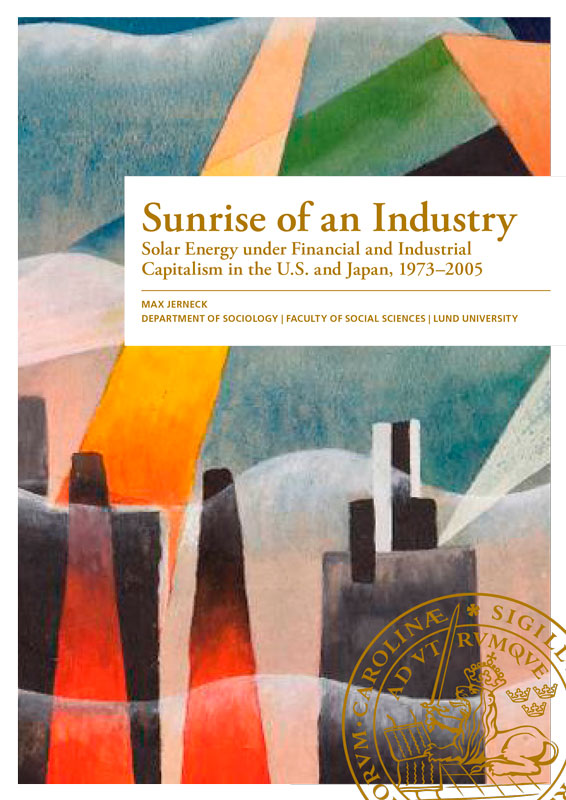Sunrise of an Industry
Solar Energy under Financial and Industrial Capitalism in the U.S. and Japan, 1973-2005
Max Jerneck
231 kr
Beskrivning
The thesis addresses the question of how to mitigate climate change by studying the emergence of solar photovoltaic energy as an example of a low carbon industry. By outlining the social conditions behind the growth of that industry, I aim to further the understanding of low carbon industrial development in general. The dissertation is a historical comparative study of solar photovoltaic development in the two early-stage leaders, the United States and Japan, from the 1973 oil crisis until 2005. Although American firms dominated the global market at the beginning of this period, they retained only a tenth of it toward the end, while Japanese firms held close to half.
The main cause of this divergence can be found in differences among institutions governing the relation between finance and industry. In the United States, financiers were permitted to dominate industry, shifting decision-making further away from the shop floor and orienting corporate governance toward increasingly short term goals. Large financial conglomerates engaging in unrelated diversification came to dominate the industry, stifling competition from more innovative entrepreneurs. When they were swept away by financialization and the consequent merger wave of the 1980s, the photovoltaics industry was left without a home or a political constituency to support it. Underlying the rise of finance was a trend toward more permissive attitudes among policy makers regarding what were previously labelled anti-competitive behavior, prohibiting the use of industrial policy to foster small photovoltaics firms in a manner similar to what had occurred in other new high technology industries a decade before. In Japan’s system of organized capitalism, finance remained subordinated to production, which encouraged long term innovation in the technology. Japanese institutions were also more conducive to related diversification, aiding the successful integration of solar cells with consumer electronics.
By placing the development of the solar photovoltaics industry in social and historical context in the two countries, the study aims to raise questions about the future of mitigating climate change through technological innovation under the present system of finance-dominated capitalism.
Ytterligare information
| Vikt | 535 g |
|---|---|
| Storlek | 14 × 169 × 239 mm |
| Språk | Engelska |
| Antal sidor | 240 |
| Publikationsår | 2015 |
| Bandtyp | Häftad |
| ISBN | 978-91-7623-371-9 |
| ISSN | 1102-4712 |





